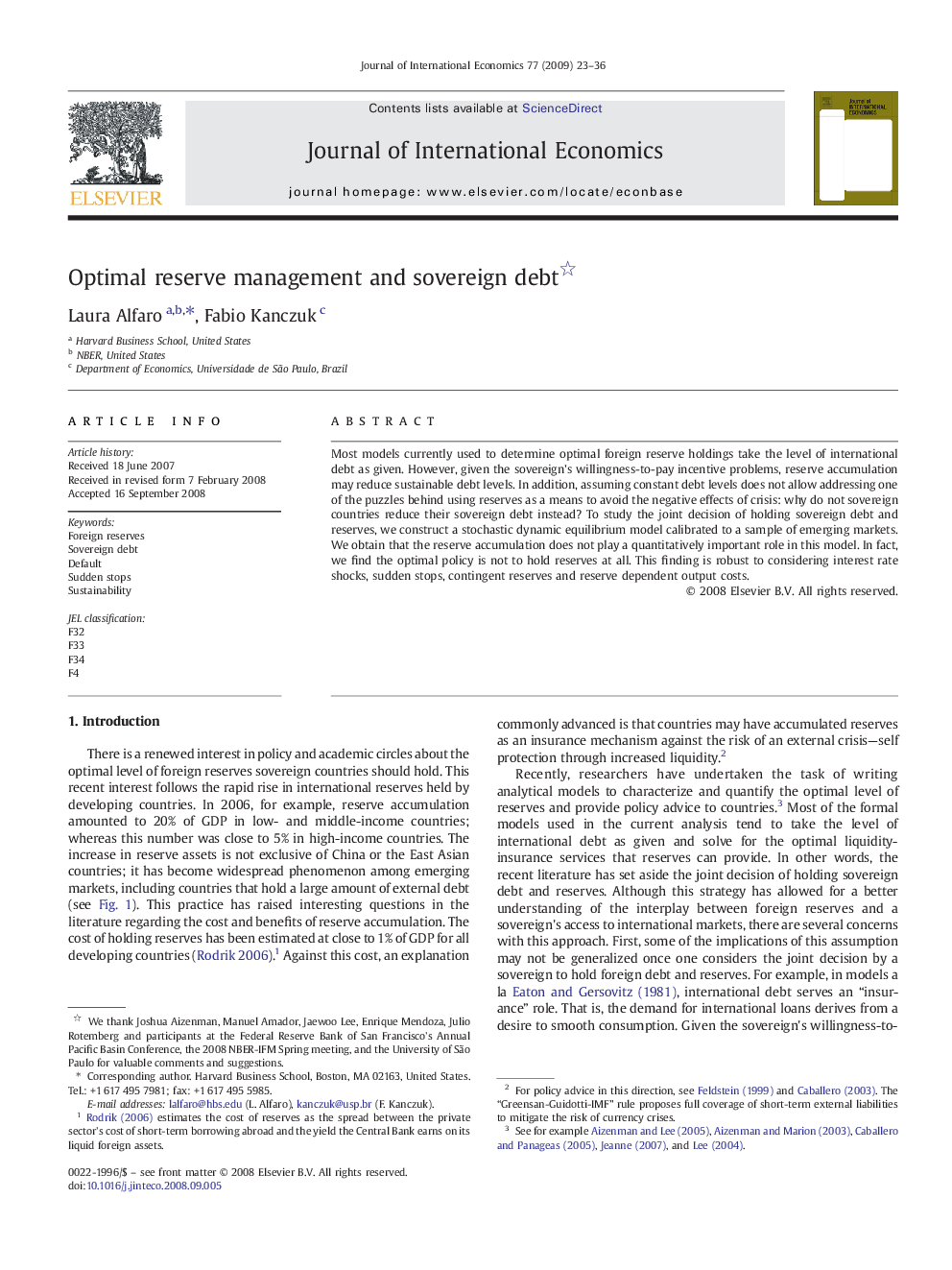| Article ID | Journal | Published Year | Pages | File Type |
|---|---|---|---|---|
| 963136 | Journal of International Economics | 2009 | 14 Pages |
Abstract
Most models currently used to determine optimal foreign reserve holdings take the level of international debt as given. However, given the sovereign's willingness-to-pay incentive problems, reserve accumulation may reduce sustainable debt levels. In addition, assuming constant debt levels does not allow addressing one of the puzzles behind using reserves as a means to avoid the negative effects of crisis: why do not sovereign countries reduce their sovereign debt instead? To study the joint decision of holding sovereign debt and reserves, we construct a stochastic dynamic equilibrium model calibrated to a sample of emerging markets. We obtain that the reserve accumulation does not play a quantitatively important role in this model. In fact, we find the optimal policy is not to hold reserves at all. This finding is robust to considering interest rate shocks, sudden stops, contingent reserves and reserve dependent output costs.
Related Topics
Social Sciences and Humanities
Economics, Econometrics and Finance
Economics and Econometrics
Authors
Laura Alfaro, Fabio Kanczuk,
